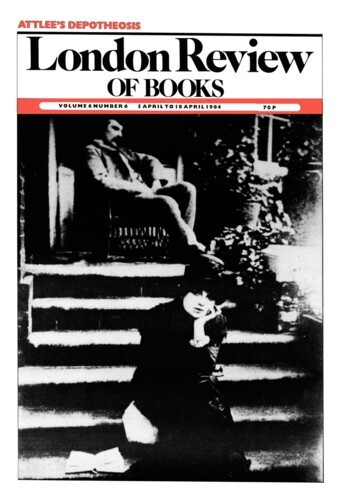‘If ever there was a Christ-like man in human form, it was Marcus Lowe,’ said Louis B. Mayer, head of Metro-Goldwyn-Mayer, in tribute to a colleague. Graham Greene was listening at the time and impaled the phrase in an essay which traps precisely the earnest fulsomeness of Hollywood speech. ‘I understand Britishers,’ Mayer went on, ‘I understand what’s required of a man they respect and get under their hearts.’ The occasion was a pre-war film-promotion lunch at the Savoy, but still today the show-business style of sentimental hyperbole lingers on. You can hear it in the banquet banalities with which people in the entertainment industry present awards to each other; it seeps into passages of Caroline Moorehead’s biography of Sidney Bernstein. ‘In every field, whether art, medicine, the sciences or technology,’ she begins, ‘there are a few figures who stand out, not only for their personal achievements, but for the way they always seem a little in advance of what is about to happen. It is at limes as if they were possessed of a kind of prescience, a prophetic understanding of what should come next.’ Since Sidney Bernstein’s prophetic understanding has consisted chiefly in a canny, highly profitable judgment of popular taste, in knowing when to pull out of music hall and invest in films or television, or turn super-cinemas into bingo halls, the fanfare seems overblown. As the publishers claim, he has played a significant part in almost every development of the British entertainment industry this century. He has never, however, been an innovator, like his friends Alfred Hitchcock and Noel Coward; he has helped-creative talent to flourish, but always as a promoter, a showman. It was his idea to hang a picture of P. T. Barnum in every office in Granada Television. He is arguably the most successful of the television barons.
‘If ever there was a Christ-like man in human form, it was Marcus Lowe,’ said Louis B. Mayer, head of Metro-Goldwyn-Mayer, in tribute to a colleague. Graham Greene was listening at...


